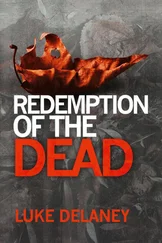And Anne saw him lean against the doorframe with all the elegant nonchalance that she loved so much, her handsome man, the man she longed for so much at night that it woke her. She pushed her swivel chair back from the desk and slowly stood up.
‘I want that too,’ she said, holding out her hand to him.
He pretended not to see it, staring down at the floor.
‘Sylvia’s been off sick all week,’ he said, quietly and angrily.
Her jubilation shattered, she could hear the splinters hitting the plastic mat.
‘I haven’t betrayed anyone,’ she said, the sharp edges cutting her voice.
He raised both hands in a calming gesture.
‘We’ve got to get past that bit,’ he said. ‘It’s no one’s fault. It wasn’t working between us; surely we can at least agree on that?’
Defiance was forcing tears into Anne’s eyes. She gasped for breath far too audibly before replying. ‘I thought it was working.’
‘But I didn’t,’ he said. ‘So it couldn’t go on. If two people are going to live their lives together they have to agree about that, don’t they?’
She closed her eyes for a few seconds, then raised her head and tried to smile. ‘Serfdom has been abolished, you mean?’
He took a couple of steps into the room.
‘Anne,’ he said in a pleading tone that made her smile fade, ‘if we can’t sort out normal communication, now, then we’ll be sitting with a payment plan that’ll last for ever. And Miranda will be the one it costs most. We can’t mess up like this.’
She pressed her fingertips against the desk, looking down at her shoes.
A flash of insight worked its way up from her feet, through her gut, rushing up to her head. She suddenly saw the world from his point of view, realized what was important for him: Miranda, his daughter; his new woman and new child. She was no longer in his consciousness in that way, all tenderness was exhausted and gone. Now she was a necessary evil, someone he once shared a child and a bed with, a by-product from a past life that he would always have to deal with.
Self-pity threatened to suffocate her; a feeble embarrassing sound escaped her throat. She took several silent breaths.
‘But I love you,’ she said, without looking at him.
He went over to her and hugged her, she wrapped her arms hard round his waist and leaned her head against his neck and wept.
‘I love you so bloody much,’ she whispered.
He rocked her gently, stroking her hair, and kissed her on the forehead.
‘I know,’ he said softly. ‘I understand that it hurts, and I’m sorry. Forgive me.’
Anne Snapphane opened her eyes to his polo sweater, feeling a tear run down her nose and hang there.
‘There’s no point in clinging on to pride any more,’ he said quietly. ‘Will you be okay?’
She wiped her nose with the back of her hand.
‘I don’t know,’ she whispered.
There were five sheets in the fax machine when Annika got home. She dropped her outdoor clothes in a heap on the hall floor; she was going to have to go out to pick up the children later anyway.
She settled onto the wooden chair by the hall table, surrounded by piles of bills, and looked quickly through the documents the woman at the Norrland News archive had faxed through, in the order they had been published in.
The first cutting indicated that Karina Björnlund had been a promising athlete as a teenager. The article was a report from the NC, which Annika presumed meant either Norrland Championship or Norrbotten Championship. The picture was grainy, with too much contrast; Annika had to screw up her eyes to make out the skinny young girl with a ponytail and the number 18 on her chest, waving a bunch of flowers jubilantly towards the photographer. There was something ecstatic about the picture that was still almost tangible, thirty-five years after it had been taken. Karina Björnlund was a success, she won all the sprint distances at the championship and was predicted a glorious future.
For some reason it made the register detailing the minister’s post feel even more shameful.
Annika put the picture of the athlete at the bottom of the pile and went on.
The second cutting was an article about the Working Dogs’ Club in Karlsvik, and showed Bamse the golden retriever and his owner Karina Björnlund, along with five other dogs and owners, getting ready for a display in the sports hall that weekend. The picture was smaller than the last one, and she could only really make out the minister’s white teeth and the dog’s dark tongue.
The third was stamped 6 June 1974, and showed a group of new graduates from the medical secretarial course at Umeå University. Karina Björnlund was third from the left in the top row. Annika glanced across the homogenous group on the picture, no men, no immigrants, most of them with their hair in a page-cut, one side curled to form a wing over one eyebrow.
The fourth cutting was the smallest, a note from 1978 under the heading Names & News , in which the Norrbotten County Council announced that Karina Björnlund had been appointed as secretary to the commissioner of the council.
The fifth was a report of what had evidently been a turbulent public meeting in the county council offices in the autumn of 1980. The picture showed four men discussing the coordination of healthcare in the district, with expansive gestures and presumably raised voices. In the background stood a woman in a flowery skirt, with watchful eyes and folded arms.
Annika looked at the sheet more closely and read the small print of the caption.
Council Commissioner Christer Lundgren defended the position of politicians on the issue of a new central hospital for Norrbotten in discussions with the Medical Council and the pressure group Protect Our Health. His secretary Karina Björnlund listens .
Okay , Annika thought, letting the paper drop. So that’s how she did it. She got a job with Christer Lundgren, who eventually became Trade Minister, clung on to his coat-tails and followed him all the way into government.
She looked at the cutting again, and saw it had been published on page twenty-two, a long way back for a local paper, and read the start of the article, which was about some technicality in the political decision-making process. She skimmed the rest of the piece until her eye caught the picture byline at the bottom right corner.
Hans Blomberg, council reporter .
She blinked, looked again. Yes, it was definitely him, a much younger and thinner version of the archivist at the Norrland News .
She let out a snort, suddenly picturing the archivist’s background as clearly as the messy table in front of her. There were people like him on every paper, conscientious but unimaginative reporters who covered Important Things, political decisions and social developments, the sort of person who wrote dull texts and defended the fact with reference to the seriousness of the subject, looking down derisively on journalists who wrote engaging, committed articles. He had probably been union representative at some point, fighting for all the hopeless cases, but never for people like her, because they could look after themselves.
And now he was sitting in the archive and counting the days until his misery was finally over.
Little Hans , she thought, twisting her arm to check the time.
Time to pick up the rugrats.
Ellen rushed towards her, arms open wide, Tiger dangling from her left hand. The joy that welled up within Annika was so hot that something melted, the sight of tights and pigtails and the red dress with a chequered heart on it made something hard and sharp give way and disappear.
She caught her daughter as she jumped at her, astonished at the child’s utter trust, and stroked her straight little legs and arms, her soft shoulders and stiff back, inhaling the divine softness of her hair.
Читать дальше












